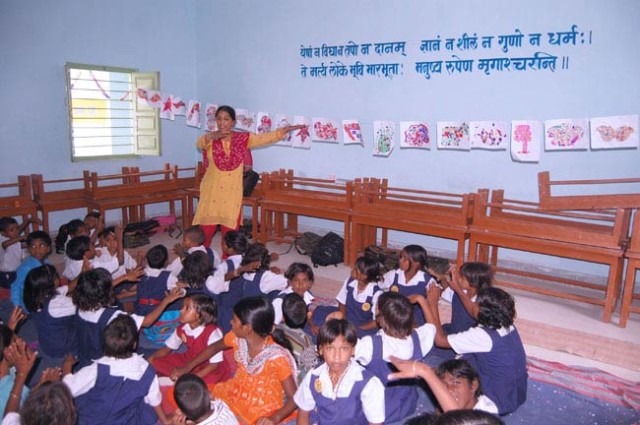Rural India is one of the most neglected parts of the country today. The people of rural India are still at a point where they have to struggle to get basic facilities like education, sanitation, electricity, medication and much more. The nation is incapable of providing the bare minimum to its people. There are structures which the children call school, but they are as good as non-existent. This is because of the low status of education, non-availability of teachers, and non-abidance of rules. And the question that arises in one’s mind after reading all of this is, if we want rural India to look like this forever. And if not now, then when would the change happen? Isn’t it already a little too late to be saying that we are trying to reach the remotest parts of the country?

There can be various reasons why rural India is plagued with so many problems, here are a few which make education, in the backward areas, a nightmare. Reason for bad status of education in Rural India are :
Sheer neglect – While the big cities of the country see development almost every single day, rural India is still struggling to get the most basic amenities like medication, electricity, water, education, etc. One visit to these backward areas will shatter all the misconceptions you have regarding the development that is happening in the country.
No proper leadership – There may be a lot of leaders in our country, but there are none who would go to these places and do what was promised at the time of elections. None of the leaders are ready to take up the challenge of taking these people out of the mud, because they have a fear of getting their own hands dirty.
No rules – Even if the government tries to put certain rules and regulations in place to ensure prosperity in these areas, the people take things like education very lightly. The teachers do not go to the classes, parents are too busy to care, and the children are happy that they don’t have to study.
How can we help?
The stories from these areas often make a person wonder about the kind of life the people there are leading. A lot of people wish to be helpful in such circumstances, but that is also not an easy deal, the people here think a lot differently than we all do-
1. Volunteer and help the children get basic education. Convince them that they can have a better life if they study hard.
2. Ask the government to use technology for the upliftment of backward areas and illiterate people. With the use of the internet and virtual reality, classes can be taken throughout the country.
3. Convince the people that education is not something that they can take lightly. It is their right to be educated and if that is not happening, they should hold the local authorities responsible.
4. The students should be more interested in the process of learning. The kids will never know what is good for them, we need to push them to learn. They need to know that education is the only thing that can save them from poverty in the long run.
5. Proper rules should be applied in these schools and inspections should be done regularly to ensure that the teachers and the principal are fulfilling their duties.
We all love our country and believe that it is already doing a lot better than the last decade, but this is far from the truth. The country has always prioritized urban and developed areas over rural and backward, and this has made the gap even bigger. In order to restore peace in the backward areas we need to start taking action now and provide the people with at least the basic amenities. It is very important to narrow down this gap and we all should work towards it together.
Image Courtesy : https://www.essar.com/upload/images/education1.jpg


























There is no doubt that in a fight between the urban and the rural, rural India has lagged behind badly. Sadly, so has the status of the education in these areas. Lack of interest of the parents and the students, poverty, lack of resources, teacher absenteeism and no significant efforts from the government have resulted into this. It must be taken under consideration as soon as possible and also that an awareness campaign being held on the grounds and not just the papers.